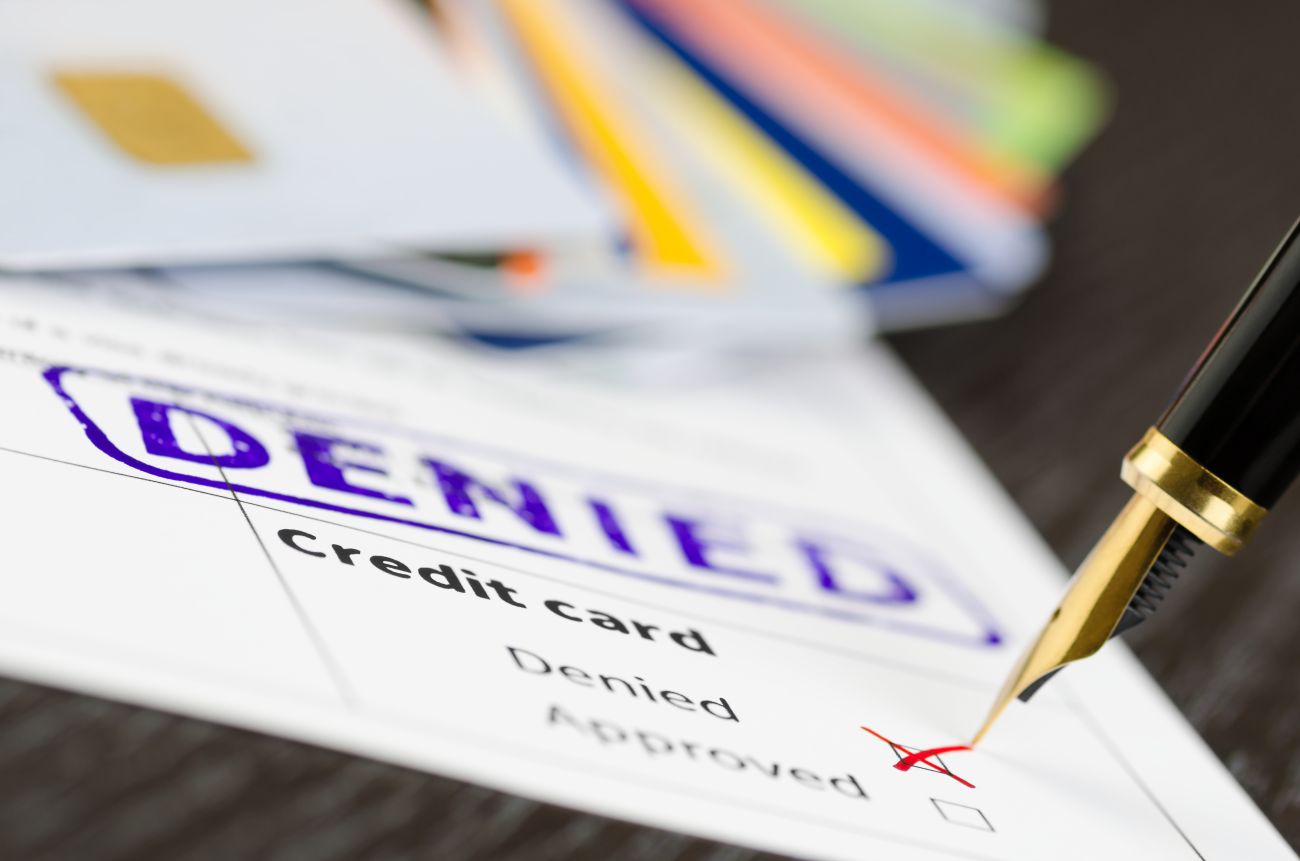Have you recently applied for a credit card and just found out that your application was denied? If you’re someone who has a history of getting credit card applications approved in record time, it can feel like a personal insult.
If you’re in this situation, you’re not alone. It can happen to anyone for several different reasons. But don’t worry. There’s likely a logical explanation and there are steps that you can take afterward to ensure your success the next time you apply.
 chase4concept / Shutterstock
chase4concept / ShutterstockMost Common Reasons Your Credit Card Application Was Denied
In order to qualify for a credit card, you need to fill out the application properly and demonstrate that you have a satisfactory credit score and credit history.
If you’ve done all that and were still rejected, here are some of the most commons reasons why that might have happened.
You Didn’t Fill out the Application Properly
One of the most common reasons for getting denied on a credit card application is when you don’t fill out the entire form properly. This includes making sure that your income is above the threshold for the card.
You can have perfect credit and decades-long credit history. Unfortunately, if you only make $45,000 per year when the cardholder minimum is $60,000, your application will not be approved.
Your Credit History Is Decent but Too Limited
It can be frustrating when you have a great credit score but were denied a credit card because your credit history is too limited. This just means that you need to keep maintaining your great credit and wait a few more years before applying for that particular card again.
Your Current Credit Card Balances Are Too High
It’s always a good idea to apply for credit cards when your balance is low or completely paid off. It shows creditors and banks that you’re trustworthy and able to pay off balances as you accrue them.
Ideally, credit card companies want to see that you’re only using a portion of your available credit. In fact, below 30 percent is recommended.
If you’ve maxed out all of your credit cards and you regularly carry over a monthly balance, it’s unlikely that creditors will want to take a chance giving you an additional card.
You Have a Recent Collection or a Negative Public Record on Your Credit History
As soon as your debt goes into collections or if you’ve had legal action filed against you by a private or public agency, it appears on your credit history.
Over time, these incidents affect your credit score less and less. However, if you’ve had a recent collection or public record, it may deter some creditors.
Most public records remain on your credit history for seven years or up to 10 or 15 years if it was an unpaid tax lien or bankruptcy.
There Are Too Many Recent Inquiries on Your Credit Report
If you’ve recently applied for a few different credit cards, you may have been denied because of the number of inquiries on your credit report. There’s no magical number for how many inquiries you can have and in what period of time. Ultimately, it’s up to the creditor.
The best way to ensure your success in the future is to only apply for one credit card at a time.
Steps to Take After a Credit Card Application Denial
If you’ve recently been denied, it’s tempting to spend your time on the phone with customer service, trying to plead your case. Unfortunately, this rarely works.
Here’s what you can do instead.
Read the Accompanying Letter from the Credit Card Company
If your credit card application was denied, the issuer should tell you why.
This information comes in the form of an Adverse Action Letter, which typically arrives eight to 10 days after your rejection. In the letter, the company will usually let you know their reasons for denying you.
This letter is very helpful in figuring out your next steps.
Look over Your Credit Report
If you were denied because of information on your credit report, you have a right to request a free copy.
Once you’ve received your free copy, look it over and make sure that all the information is correct. Credit bureaus often make mistakes, so you should never be penalized for a clerical error.
Read over Your Free Credit Score
Although you do have to request a credit history report, you should receive a free copy of your credit score automatically, as soon as your credit card application was denied.
Like your credit history, look over your credit score carefully. Make notes of any errors. From there, you can find the places where your credit needs improvement.
Make a Plan for Repairing Your Credit
Once you’ve looked over your credit history and credit score, you’ll have a good sense of what your next steps should be.
If you’re carrying a high balance, work hard on paying it off. If you’ve had too many inquiries on your credit report, slow down your applications and maybe even take a few months off from applying for credit cards.
Reapply After a Sensible Waiting Period
Once you’ve improved your credit and waited a reasonable amount of time, you can apply again. However, be careful not to apply again too quickly or you’re more likely to be rejected.
There’s no hard-and-fast rule about how long to wait. Many credit bureaus recommend waiting at least six months between applications.
Look at Other Credit Products
If you’re unable to get approved for a conventional credit card, you may want to look into other credit products, like retail credit cards or even a secured credit card. These both have an easier approval process. However, they do come with their own restrictions.
Check Your Approval Odds Next Time
There are certain tools online that you can use to check your likelihood of being approved for a credit card. Using these tools before submitting a formal application allows you to limit the number of unnecessary inquiries on your credit report.
While these tools can’t guarantee approval, they are a helpful way for you to gauge whether it’s worth the application.
Conclusion
Getting rejected for a credit card can feel disheartening and confusing. It’s hard to know what to do next.
Fortunately, with these resources, you can formulate a plan that will give you a better understanding of your credit and what you need to do to ensure your success the next time you apply.


